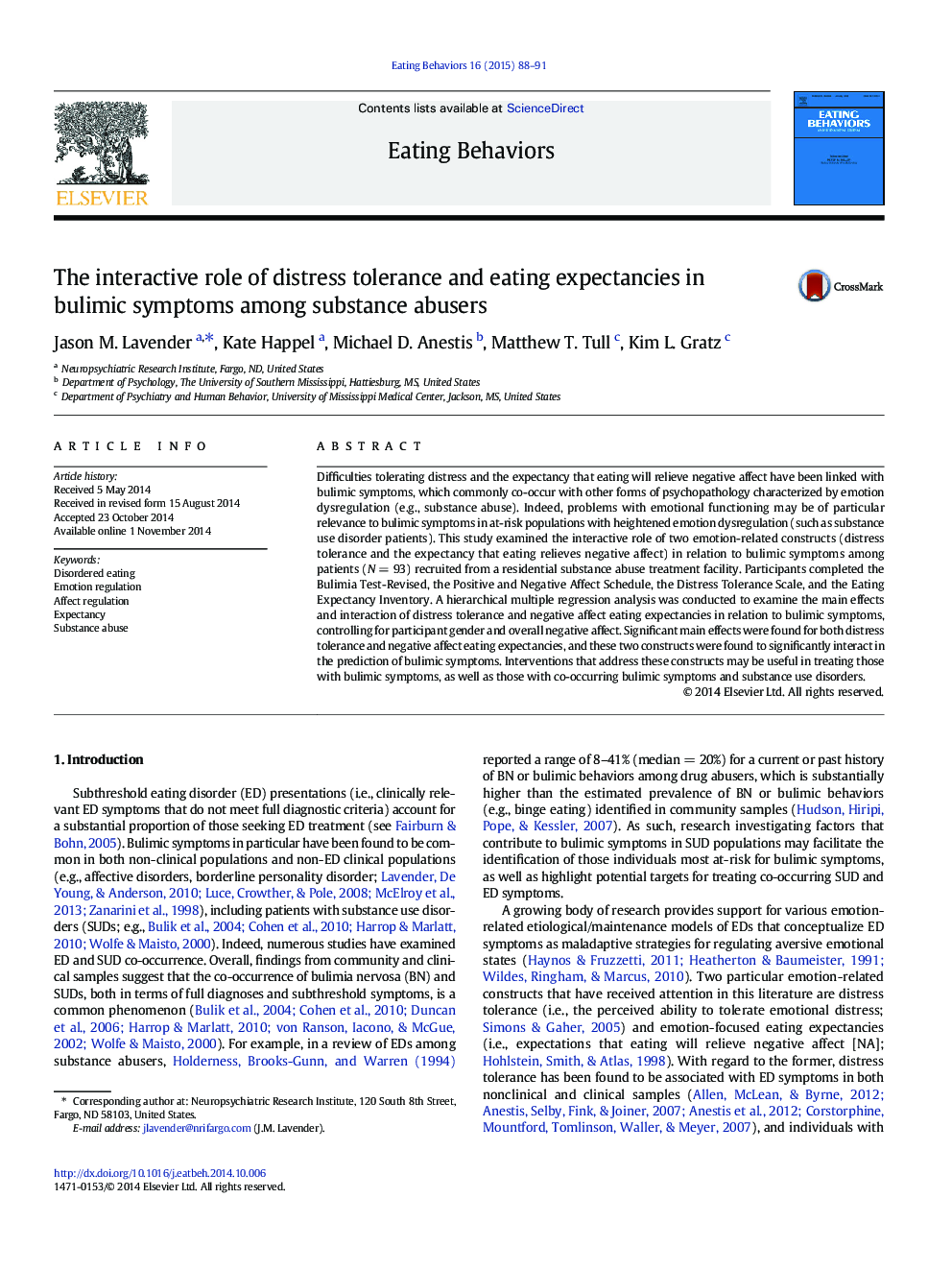| کد مقاله | کد نشریه | سال انتشار | مقاله انگلیسی | نسخه تمام متن |
|---|---|---|---|---|
| 906543 | 1472887 | 2015 | 4 صفحه PDF | دانلود رایگان |
• Distress tolerance and eating expectancies have been implicated in EDs.
• This study examined these emotion-related constructs in relation to bulimic symptoms.
• Significant main effects for both constructs and a significant interaction were found.
Difficulties tolerating distress and the expectancy that eating will relieve negative affect have been linked with bulimic symptoms, which commonly co-occur with other forms of psychopathology characterized by emotion dysregulation (e.g., substance abuse). Indeed, problems with emotional functioning may be of particular relevance to bulimic symptoms in at-risk populations with heightened emotion dysregulation (such as substance use disorder patients). This study examined the interactive role of two emotion-related constructs (distress tolerance and the expectancy that eating relieves negative affect) in relation to bulimic symptoms among patients (N = 93) recruited from a residential substance abuse treatment facility. Participants completed the Bulimia Test-Revised, the Positive and Negative Affect Schedule, the Distress Tolerance Scale, and the Eating Expectancy Inventory. A hierarchical multiple regression analysis was conducted to examine the main effects and interaction of distress tolerance and negative affect eating expectancies in relation to bulimic symptoms, controlling for participant gender and overall negative affect. Significant main effects were found for both distress tolerance and negative affect eating expectancies, and these two constructs were found to significantly interact in the prediction of bulimic symptoms. Interventions that address these constructs may be useful in treating those with bulimic symptoms, as well as those with co-occurring bulimic symptoms and substance use disorders.
Journal: Eating Behaviors - Volume 16, January 2015, Pages 88–91
